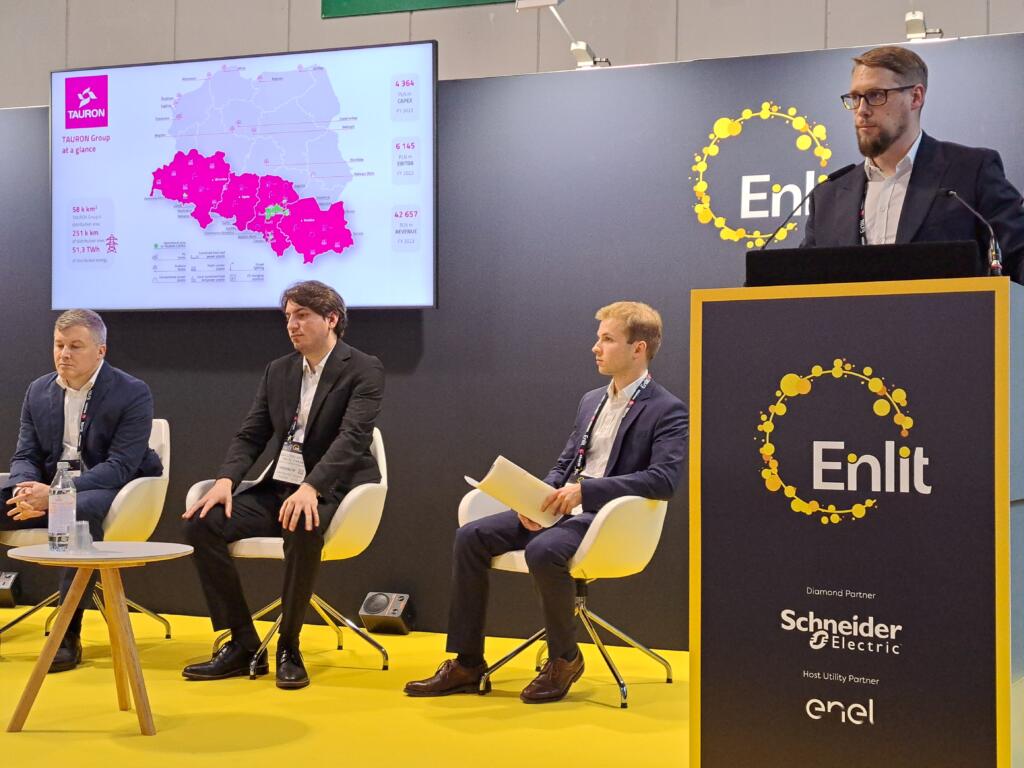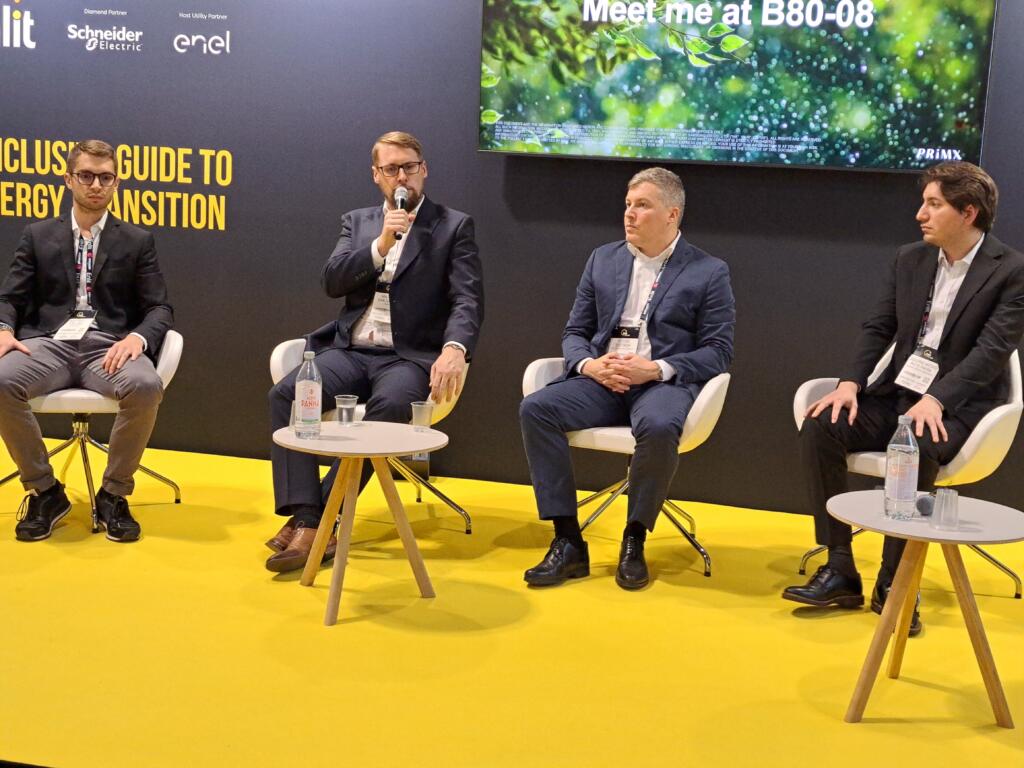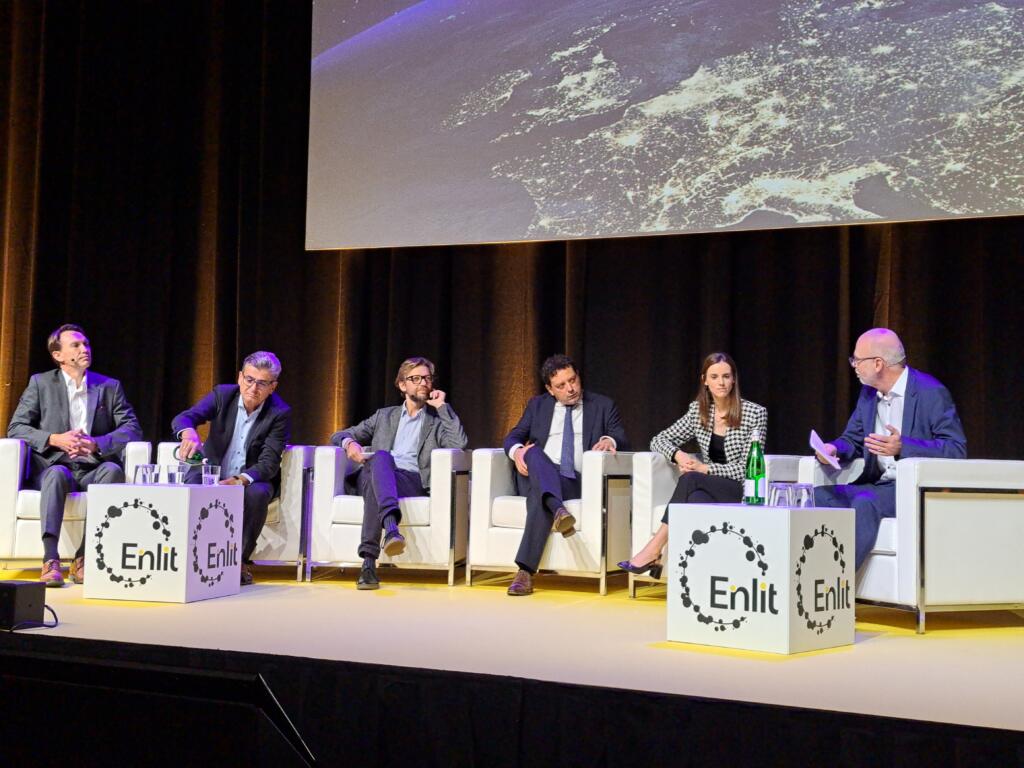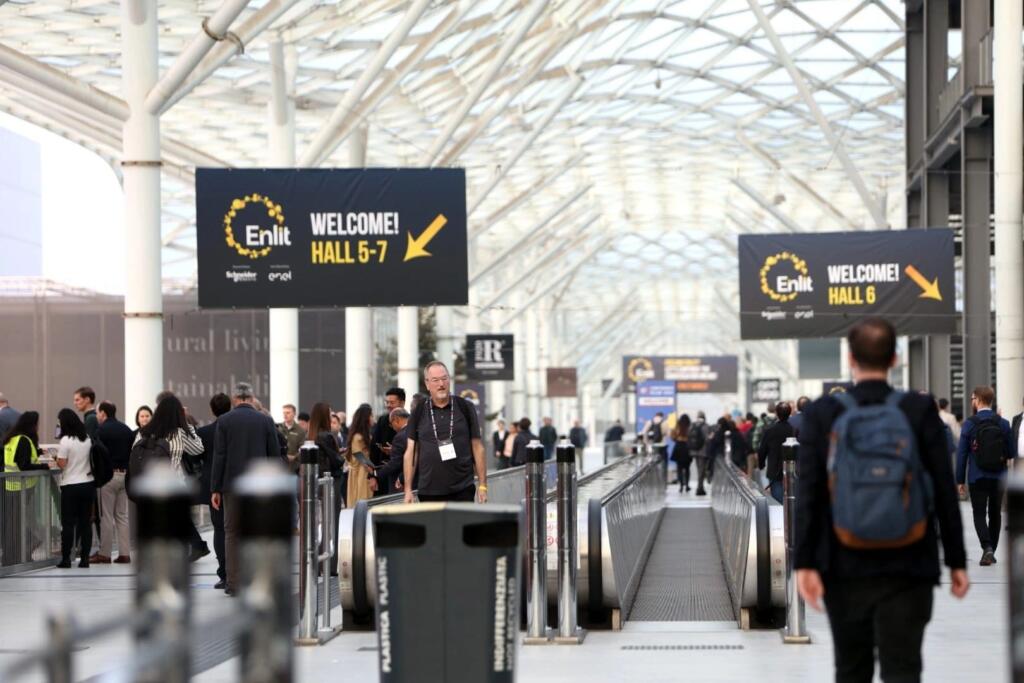Discussions on issues concerning the broadly understood energy transition was the main goal of the Enlit conference. The event, hosting the representatives of the European Union and the European energy sector, took place on 22, 23 and 24 of October 2024 in Milan. The Polish Electricity Association (PKEE) was represented by Michał Orłowski Vice-President of the Management Board for Asset Management and Development at TAURON and Paweł Wróbel the PKEE Director.
Energy storage in the energy transition
During the session “BESS in the Energy Transition”, Michał Orłowski Vice-President of the Management Board for Asset Management and Development at TAURON reminded that in the coming years energy storage will be a key strategic direction, as reflected in EU policy and legislation. He added that Tauron wants and will be a part of this trend.
Another element Mr. Orłowski pointed towards was the fact that the energy market should be the basis for the development of storage, but as we know, this market is sometimes imperfect. Complementary investment mechanisms to support flexibility to the energy system may be needed. “In the reality where we have pro-energy storage approach, strongly reflected in policies, we still lack support schemes, dedicated, separate funds for energy storage and clear framework on financing” - he emphasized.
Mr. Orłowski also assured that Tauron, as a company with ambitious goals for the future, plans to significantly increase the capacity of renewable energy sources which is, inseparable from the development of the energy storage. “There is no well-functioning RES based energy system without well-developed energy storage” - he explained.
Dispatchable power for a successful energy transition
Paweł Wróbel, Director of PKEE, during the debate "Dispatchable power for a successful energy transition", emphasized the role of technological neutrality approach, which is currently evolving in the context of the challenges facing the energy sector. “Technology neutrality principle means the need to provide unlimited catalog of cost-effective technological solutions. This also applies to energy transmission, distribution or storage” - he said.
Director Wróbel also noted that the role of capacity mechanisms (CRMs) is growing in Europe. The level of openness of the European Commission to this solution is also increasing – what is reflected in the revised electricity market design legislation. All speakers in the debate agreed that although this is not a perfect mechanism, there is currently no better solution. "Ongoing discussions on the most efficient capacity mechanisms indicate the need to provide signals for the development of investments in new sources and services" – noted Mr. Wróbel.
The head of PKEE also stressed out that the topic of energy transition and necessary investments should be treated in a comprehensive, coherent manner. So far, decarbonization of generation has dominated role, now it is necessary to focus also on the development of grids, storage and ensure system flexibility.





